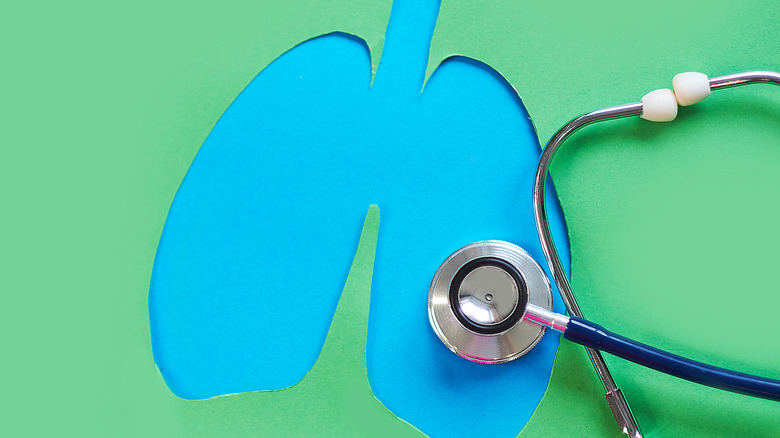How Is Cystic Fibrosis Treated?
Cystic fibrosis (CF) is a genetic disorder that causes problems in the lungs, digestive region, and other nearby organs (Via Mayo Clinic). Normally, these organs have cells that produce mucus or digestive juices and help keep the pathways slippery for smooth flow. However, CF stems from a genetic mutation that affects those cells, leading to thicker mucus and resulting in the fluids blocking the pathways instead of lubricating them. Per Healthline, about 30,000 Americans have cystic fibrosis, with the disease affecting white individuals more than any other ethnic group; it is less common in African Americans and Asian Americans. Some people are merely carriers of the CF gene and may not know it.
According to WebMD, symptoms of cystic fibrosis include greasy stools, salty skin taste, lung infections, infertility, and problems with breathing. WebMD further reveals that cystic fibrosis is commonly diagnosed after conducting blood tests for high levels of immunoreactive trypsinogen (IRT), typically on infants. Doctors may also suggest a DNA test to look for the defective gene. Based on the diagnosis, your doctor might lay out a CF management plan and advise the best treatment options.
Best treatments for cystic fibrosis
Unfortunately, there is no cure for cystic fibrosis (via WebMD). However, medications and numerous therapies can help manage the symptoms of cystic fibrosis and ease the patient's pain. Primarily, antibiotics are the go-to choice for CF patients to treat lung infections. They may be available as pills or in the form of an inhaler. To treat CF inflammation, you may be prescribed anti-inflammatory medicines such as ibuprofen. According to CysticFibrosis.com, some doctors may prescribe bronchodilators to help with breathing problems. These medications contain short-acting beta agonists like albuterol or levalbuterol that act fast to open up the air pathways and make breathing easier for people with CF.
Another remarkable treatment for cystic fibrosis is the use of mucus thinners, as per the Cystic Fibrosis Foundation (CFF). As the name implies, these are inhaled medications that help get rid of the thick, sticky mucus clogging respiratory pathways and enable it to pass easily. These mucus thinners don't remain in the system for long and the effects are short-term. Therefore, you may have to act quickly to expel the mucus after taking them, advises CFF.

